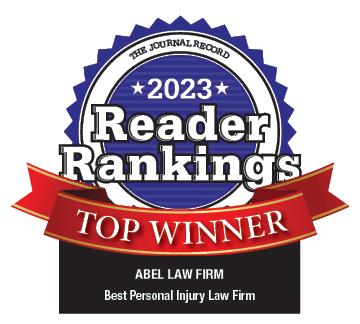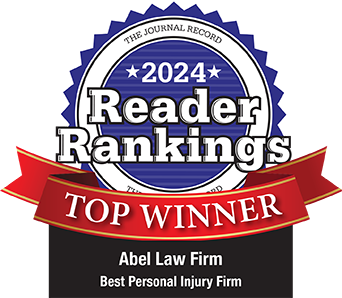Statutes of limitations – vitally important in life – have consequences beyond the grave. Persons having a cause of action for injuries must preserve their claims within the applicable statutes of limitations or forfeit the right of their estates to bring an action for their injuries and the right of their survivors to sue for wrongful death.
Survival actions
At common law, personal injury actions abated upon the death of the injured party. Nealis v. Baird, 1999 OK 98, 996 P.2d 438, 446. Now, by statute, actions for personal injury other than libel, slander or malicious prosecution survive the death. 12 O.S. §1052. “In addition to the causes of action which survive at common law, causes of action for mesne profits, or for an injury to the person, or to real or personal estate, or for any deceit or fraud, shall also survive; and the action may be brought, notwithstanding the death of the person entitled or liable to the same.” 12 O.S. §1051. Such claims are known as “survival” actions and are subject to general statutes of limitations, e.g. one year for assault and battery and two years for negligence. Kimberly v. DeWitt, 1980 OK CIV APP 2, 606 P.2d 612, 616; see, 12 O.S. §95.
“An action under the survival statute is for personal injury to the decedent and is in behalf of his estate.” Haws v. Luethje, 1972 OK 146, 503 P.2d 871, 874. “The damages to the injured person’s estate begin with the wrong and cease with his death.” Stewart v. Harris, 1967 OK 223, 434 P.2d 902, 903; Gochenour v. St. Louis-San Francisco Railway Co., 1952 OK 4, 239 P.2d 769, 771.
Survival actions were formerly always independent from claims for wrongful death and had to be brought in a separate action or at least as a separately-numbered cause of action. See, Hale v. Hale, 1967 OK 70, 426 P.2d 681, 683 (overruled on other grounds, Unah By and Through Unah v. Martin, 1984 OK 2, 676 P.2d 1366); Kimberly, 606 P.2d at 615. Because of amendments in 1978 and 1979 to the wrongful-death statute, 12 O.S. §1053, survival claims are now subsumed into wrongful-death claims when an injury results in death and statutory claimants exist.
Survival actions may still be independent if a person dies of causes unrelated to the tort; his or her estate may bring or continue a lawsuit for personal injury. A survival action is also available if a person dies because of a tort but leaves no survivors who would qualify as claimants under the wrongful-death statute, i.e. spouse, children, parents or next of kin.
Damages to the Estate
Survival damages include physical and mental pain and suffering, medical and burial expenses, permanency of the injury, loss of earnings/time, impairment of earning capacity, and punitive damages. See, OUJI-CIV 2d 4.1, 4.2; Spiker v. Farmers Co-op. Exchange of Jet, 1990 OK CIV APP 102, 802 P.2d 650, 652. They also include prejudgment interest. Cartwright v. Atlas Chemical Industries, Inc., 1978 OK CIV APP 23, 593 P.2d 104, 120. A surviving injury may result from the tort of bad faith, with damages for emotional distress, attorney fees and other losses. Clements v. ITT Hartford, 1999 OK CIV APP 6, 973 P.2d 902, 903.
Wrongful-Death Actions
Wrongful-death actions were not available under common law, but after the British Parliament passed the Fatal Accidents Act of 1846 (known as Lord Campbell’s Act), wrongful death statutes were also enacted in the United States. Nealis, 996 P.2d at 446. The wrongful-death claim begins when the survival claim ends, allowing a “’… single recovery for a double wrong.’” Chicago, R.I.&P. Railway Co. v. Fontron Loan & Trust Co., 1923 OK 172, 214 P. 172, 173. “Those named in the statute have no right of action until death results from injury. When that event occurs the cause of action vests in those recognized in the statute.” Independent School District No. 89 v. McReynolds, 1974 OK 136, 528 P.2d 313, 317.
The actions must be filed within two years of the death. 12 O.S. § 1053; Kimberly, 606 P.2d at 616. The two-year limitations period in §1053 is tolled by the minority of surviving children. Brookshire v. Burkhart, 1929 OK 428, 283 P. 571-72, 576-78. The minors’ claims survive until one year past minority unless a properly-brought wrongful-death action on their behalf is completed — i.e. totally adjudicated on the merits — during their minority. Hamilton v. Vaden, 1986 OK 36 , 721 P.2d 412, 418.
A Derivative Claim
Wrongful death is governed solely by statute. Haws, 503 P.2d at 875-876. The statute conditions the right to those situations in which the decedent “… might have maintained an action, had he or she lived”. 12 O.S. §1053(A). “It is conceded that the wrongful death statute extends to a deceased’s legal representative a new and separate cause of action against a wrongdoer. However, it is equally as clear any right of action thus granted by the statute is predicated solely upon the right of action which was personal to the deceased had he lived.” Hill v. Graham, 1967 OK 10, 424 P.2d 35, 37-38. “[Wrongful-death] statutes generally provided that a decedent’s personal representative could bring an action for the decedent’s death only if at the time of his or her death, the decedent had a right of recovery for the injuries in suit. The wrongful death action was hence viewed as derivative of a personal injury action.” Haws, 503 P.2d at 873, 874 (decedent’s settlement and release of his claim prior to death prohibited widow from bringing wrongful-death action). “The wrongful death statute … is clear and unambiguous. … We see nothing in such language which may be construed as giving plaintiff a cause of action in circumstances where the statute … would not have extended a right of action to deceased prior to his demise.” Hill, 424 P.2d at 38.
Notwithstanding language in Weatherman v. Victor Gasoline Co., 1942 OK 191, 130 P.2d 527, 528, and Kimberly, 606 P.2d at 616, about Oklahoma’s following the “majority view” in 1942 in allowing a wrongful-death action even if the decedent had not preserved his cause of action at the time of death, it is clear, under current law, both the death and the survivor actions lie only if at the time of death the decedent had a right of recovery for the injury at issue. Ouellette v. State Farm Mut. Auto. Ins. Co., 1994 OK 79, 918 P.2d 1363, 1365-1366 (“widow’s claim is derivative of that which the decedent could have brought had he survived the accident”).
“Whatever rights the decedent might have had in his life accrue to the personal representative at death, thus overcoming the common law barrier of death.” Riley v. Brown and Root, Inc., 1992 OK 114, 836 P.2d 1298, 1301. “The survivors have no more and no less rights than did the decedent.” Id. “Hence, an injured party’s actions between the date of injury and date of death, such as a release or an untimely delay, will bar the wrongful death action.” Id.
The Riley court approved of the reasoning in Huff v. Fibreboard Corporation, 836 F.2d 473 (10th Cir.1987): since the decedent’s claim was barred by limitations at the time of his death, his wife had no claim. “The court stated that Section 1053 was quite clear in stating that ‘if the deceased on the date of his death had no cause of action against the tort-feasor for the injuries which cause his death, then his personal representative has no wrongful death action against that same tort-feasor.’” Id.; see also, Hale, 426 P.2d at 683 (mother had no claim for child’s death against father since child could not have sued parent for negligence before the decision in Unah, 676 P.2d at 1368); Hill, 424 P.2d at 37 (wife had no claim for husband’s death against minor child since husband could not have sued his unemancipated child for negligence); Esther v. Wiemer, 1993 OK CIV APP 145, 859 P.2d 1140, 1142 (no wrongful-death action when bar owner had no duty to intoxicated man who fell on wet stairs); but see, Stewart v. Harris, 1967 OK 223, 434 P.2d 902, 905 (children had claim for mother’s death since mother could have sued husband for injuries).
A special situation exists in medical malpractice actions because of the discovery rule. In Redwine v. Baptist Medical Center of Oklahoma Inc., 1983 OK 55, 679 P.2d 1293, a man expired during surgery in March of 1976 and suit was filed within two years against a hospital and clinic. Then, in February of 1978, the widow learned of an equipment malfunction that caused the death and amended her petition to name doctors as defendants in May of 1978. Since 76 O.S. § 18 (statute of limitations for cases against physicians, health care providers or hospitals) encompasses a discovery rule, her amendment, brought within two years of when she knew the cause of the death, was timely — as long as the jury found she had exercised reasonable diligence in discovering the cause. Id. at 1295.
Damages to Survivors
Wrongful-death damages now include items formerly personal to the injured party in addition to the damages of the beneficiaries, both financial and emotional. OUJI-CIV 8.1, 8.2. Since 1975, damages recoverable for the death of an unmarried, unemancipated minor child include emotional damages of the parents. 12 O.S. §1055.
–Lynn Brusin Mares


